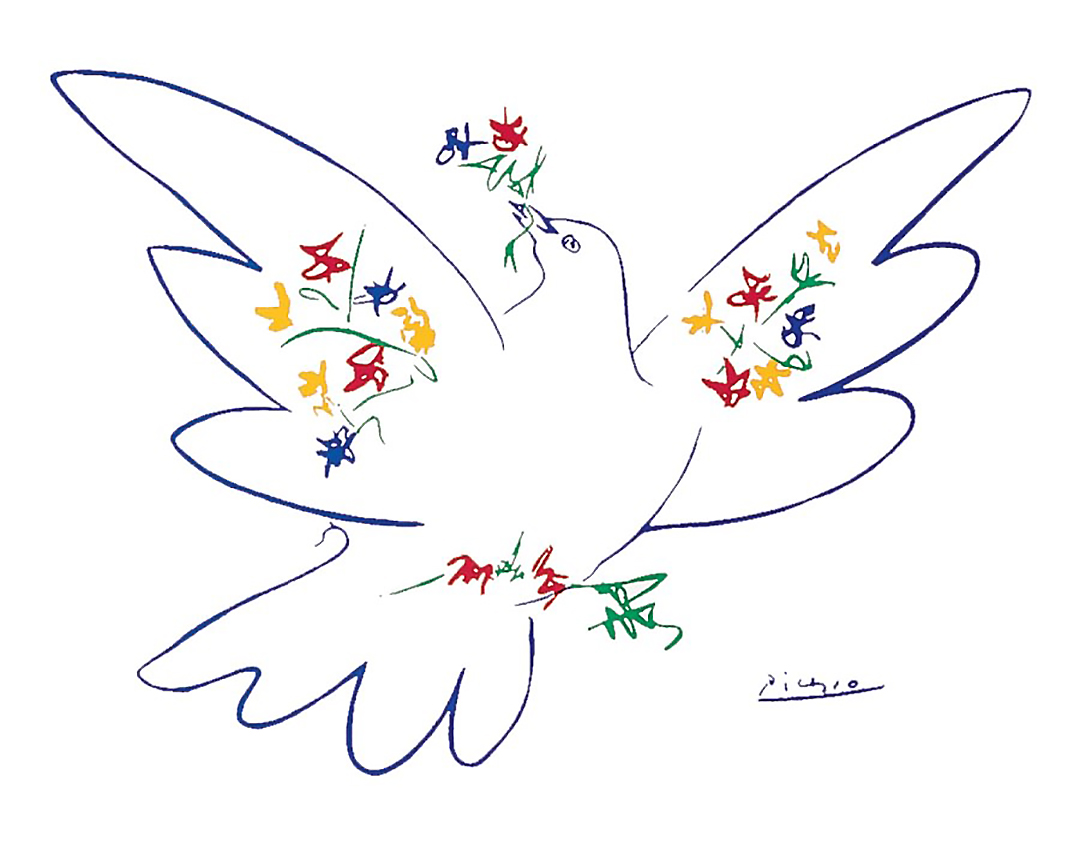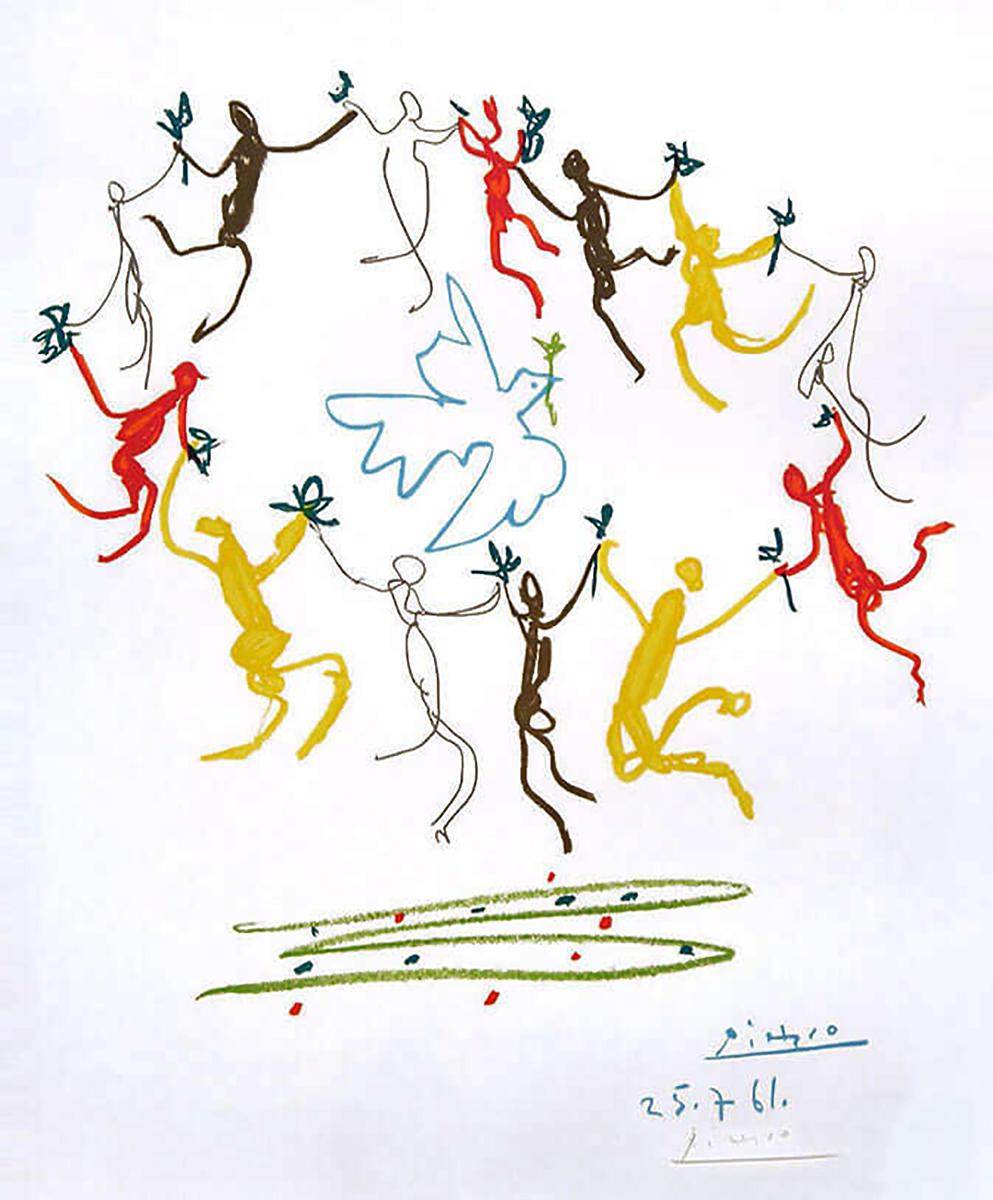December 8: Exhortation, Encouragement, and Prayer
♫ Music:
Day 6 - Friday, December 8
Title: Exhortation, Encouragement, and Prayer
Scripture: Philippians 4:1-9
Therefore, my brothers, whom I love and long for, my joy and crown, stand firm thus in the Lord, my beloved. I entreat Euodia and I entreat Syntyche to agree in the Lord. Yes, I ask you also, true companion, help these women, who have labored side by side with me in the gospel together with Clement and the rest of my fellow workers, whose names are in the book of life. Rejoice in the Lord always; again I will say, rejoice. Let your reasonableness be known to everyone. The Lord is at hand; do not be anxious about anything, but in everything by prayer and supplication with thanksgiving let your requests be made known to God. And the peace of God, which surpasses all understanding, will guard your hearts and your minds in Christ Jesus. Finally, brothers, whatever is true, whatever is honorable, whatever is just, whatever is pure, whatever is lovely, whatever is commendable, if there is any excellence, if there is anything worthy of praise, think about these things. What you have learned and received and heard and seen in me—practice these things, and the God of peace will be with you.
Poetry:
Let Evening Come
By Jane Kenyon
Let the light of late afternoon
shine through chinks in the barn, moving
up the bales as the sun moves down.
Let the cricket take up chafing
as a woman takes up her needles
and her yarn. Let evening come.
Let dew collect on the hoe abandoned
in long grass. Let the stars appear
and the moon disclose her silver horn.
Let the fox go back to its sandy den.
Let the wind die down. Let the shed
go black inside. Let evening come.
To the bottle in the ditch, to the scoop
in the oats, to air in the lung
let evening come.
Let it come, as it will, and don’t
be afraid. God does not leave us
comfortless, so let evening come.
OBLIGATION TO OPPORTUNITY
Sometimes we focus on the negative things in life too much. Don’t get me wrong, I’m not advocating a pollyannaish faith that is blindly naïve to life’s harsh realities. And I believe that honestly understanding and deeply empathizing with the brokenness in our world develops Christ-like compassion. But sometimes, negativity grips our hearts and imaginations a bit too forcefully. At an extreme, our morbid meditations spiral us into confusion and darkness, and more commonly, we adopt a cynical, glass-half-empty worldview.
The problem with prolonged negativity is that we begin to look at life, relationships, and work as obligations more than opportunities (NOTE: Clinical Depression is something completely different that needs professional help). Obligation says I must do this, while opportunity says I get to do this. Obligation is life-draining, and so my energies focus on replenishing my depletion and overcompensating for my neediness. Opportunity is life-giving, and so my energies focus on serving and meeting others’ needs.
Advent is an invitation into hope; it is a journey from obligation to opportunity. We await the day our King returns, and so we invest in Kingdom work in the meantime. We long for the day when life in the Spirit will be completely realized, and so we learn to walk more closely with Him each day. We anticipate the day our Father will make all things new, and so we impart life where we can. The hope of Advent is not rose-colored optimism; it is confidence that God will appear just as He did that first Advent.
Paul’s words in Philippians 4, then, is helpful in moving us from obligation to opportunity. He encourages us: rejoice. It’s so important he repeats it: rejoice. Just in case we didn’t hear him correctly: rejoice. Because we can rationalize our negativity: rejoice. If anyone has reason to dwell on the negative here, it’s Paul. He’s writing from his prison cell, and yet this epistle to the Philippians is laced with joy and hope. God exists, and is personal, and is near: rejoice.
Second, Paul encourages us to listen to God’s voice. Our hearts are sometimes so dialed into the anxieties of our hearts and the worries of this world. And if we’re honest, we’ll readily admit that we’re more motivated by our anxieties than the voice of God. That’s why Paul invites us to let our requests be made known to God, to present our hearts to God in honest prayer. He’s not commanding us to simply stop being anxious (that’s impossible!), but helps us see that the place where we express our anxieties to God is the place where God’s voice becomes clearer.
Third, Paul encourages us to make the intentional choice. Many times, we expect the peace of God to be zapped into us – that a zen-like state will supernaturally enter our hearts. And though God can definitely do that, it’s more normative that the journey from obligation to opportunity is an intentional choice. For all the positive things that we’re to dwell on – the true, honorable, just, pure, lovely, commendable, excellent, praiseworthy – we must not only think about these things but practice these things. Core beliefs don’t change by simply shifting our thoughts; our hearts change as we intentionally choose to follow the Spirit from obligation to opportunity.
Prayer:
Father of our Lord Jesus Christ,
ever faithful to your promises
and ever close to your Church:
The earth rejoices in hope of the Savior's coming
and looks forward with longing
to his return at the end of time.
Prepare our hearts and remove the sadness
that hinders us from feeling the joy and hope
which his presence will bestow,
for he is Lord for ever and ever.
Amen
-Alternative Opening Prayer
Third Sunday of Advent (Gaudete Sunday)
Christian Prayer: Liturgy of the Hours
Mike Ahn
Director of Worship and Formation
Host of The Biola Hour Podcast
About the Artwork #1
Peace Dove, 1949
Pablo Picasso
Color lithograph
61 x 47 cm
About the Artwork #2
Dance Around the Dove of Peace or Youth Dance, 1961
Pablo Picasso
Color lithograph
61 x 47 cm
In 1949, artist Pablo Picasso’s lithograph entitled Dove of Peace was chosen as the emblem for the First International Peace Conference in Paris. Picasso later developed this image into the simple, graphic line drawing that has become one of the world’s most iconic symbols of peace. Picasso agreed to create other peace-dove images for similar conferences across Europe. In the second composition, the circular formation of the dancers rejoicing round the dove of peace is similar to a traditional Catalonian dance entitled the “Sardana” which appears frequently in Picasso’s lithographs.
About the Artist:
Pablo Picasso (1882-1973) was a Spanish painter, sculptor, printmaker, ceramicist, stage designer, poet, and playwright who is considered one of the most influential artists of the 20th century. Known as the “Father of Modern Art,” there has been no other artist, prior to Picasso or since, who has had such an impact on the art world. Picasso’s free spirit, his energetic style, and his complete disregard for what others thought of his work, made him a household name during his lifetime. Picasso’s development of Cubism and Modern Expressionism, both art movements that abstracted reality to express the artist’s inner vision and emotions, made his work a catalyst for generations of artists to follow. His career spanned a 75-year period in which he created 13,500 paintings, 100,000 prints and engravings, 34,000 book illustrations, and 300 sculptural and ceramic works. Picasso's genius is especially witnessed in his drawings; with often just a single, well thought-out line in pencil or chalk, he was able to express a simplicity of form that represents the power in abstraction.
About the Music:
“Joy” from the album The Ravishing Genius of Bones
About the Composer and Performer:
Brian Finnegan (b. 1969) is an internationally-acclaimed tin whistle and Irish flute player. Finnegan has played in several touring bands, most notably the virtuosic folk quartet Flook. His solo album The Ravishing Genius of Bones contains original compositions evocative of Finnegan’s family roots and upbringing along the coast of Northern Ireland.
About the Poet:
New Hampshire's poet laureate at the time of her untimely death at age forty-seven, Jane Kenyon (1947-1995) was noted for verse that probed the inner psyche, particularly with regard to her own battle against the depression that lasted throughout much of her adult life. Writing for the last two decades of her life at her farm in northern New England, Kenyon is also remembered for her stoic portraits of domestic and rural life. Essayist Gary Roberts noted in Contemporary Women Poets, that her poetry was "acutely faithful to the familiarities and mysteries of home life, and it is distinguished by intense calmness in the face of routine disappointments and tragedies."
About the Devotional Writer:
Mike Ahn (Talbot ’09; Twitter: @mikeyahn) oversees Biola’s more right-brained chapel expressions: worship teams, Singspiration, The Biola Hour, and Image of God chapels. He also serves on the Pastoral Care team. Prior to working at Biola, Mike was a high school teacher/chaplain and local church pastor for 10 years. He and his wife, Mary, have two young children, Zoe and Zane.

